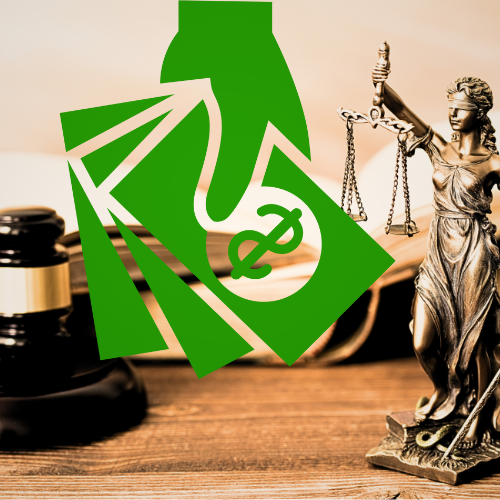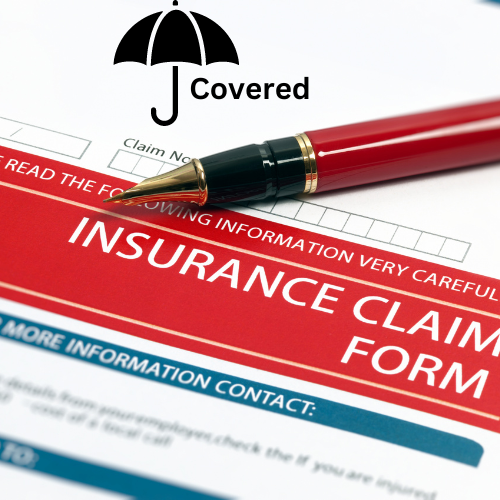
What You Need to Know
Safeguarding Your Business from Catastrophic Liability
In today’s business environment, the risk of facing a large liability claim is ever-present. Even with primary liability coverage, a significant claim could exceed your policy limits, potentially threatening the financial stability of your business.
That’s where Commercial Umbrella Insurance comes in. It provides an extra layer of protection, ensuring that your business has the coverage it needs when the unexpected occurs.
What is Commercial Umbrella Insurance?
Commercial Umbrella Insurance is a type of business liability insurance that extends the coverage limits of your primary liability policies, such as General Liability, Commercial Auto, and Employer’s Liability.
It acts as a financial safety net by covering costs that exceed the limits of these primary policies, including legal fees, damages, and medical expenses.

Think of it as an added layer of protection against catastrophic losses that could otherwise jeopardize your business.
How Does Commercial Umbrella Insurance Work?
A commercial umbrella policy works in three key situations:
- Exhausted Limits: When the limits of your underlying policy (such as general liability or commercial auto) are exhausted, the umbrella policy steps in to cover the additional costs.
- Coverage Gaps: If a loss is excluded under your underlying policy but covered by the umbrella, the umbrella policy will provide coverage after you meet the self-insured retention (similar to a deductible).
- Reduced Aggregate Limits: If previous losses have reduced the aggregate limit of your underlying policy, the umbrella policy can cover a subsequent loss that isn’t fully covered.



Key Features of Commercial Umbrella Insurance
1. Coverage Limits
Commercial umbrella policies typically offer coverage starting at $1 million and can go up to $100 million or more, depending on the size and nature of your business.

These policies are often written in increments of $1 million, offering flexibility for businesses of all sizes.
2. Self-Insured Retention (SIR)
If your underlying policies do not cover a particular claim, the self-insured retention (SIR) kicks in.
This is the amount you must pay out of pocket before the umbrella policy provides coverage, similar to a deductible.

3. Broad Form vs. Follow Form
- Follow Form umbrellas closely mirror the coverage provided by the underlying policies, ensuring consistency across your liability coverage.
- Broad Form umbrellas may offer wider coverage than your underlying policies, potentially filling gaps and offering broader protection.
4. Drop-Down Coverage

If the underlying policy limits are exhausted due to previous claims, the umbrella policy can “drop down” to take over coverage for subsequent claims.
5. Worldwide Coverage
For businesses with international operations, many commercial umbrella policies offer worldwide coverage, providing protection for liability claims that occur outside the United States.
6. Defense Costs
Umbrella policies often include defense costs in addition to the policy limits, ensuring that your legal fees are covered without reducing the amount available for settlements or judgments.

Benefits of Commercial Umbrella Insurance
1. Increased Liability Coverage
Umbrella insurance provides additional coverage beyond the limits of your underlying liability policies.

If your business is hit with a large claim, the umbrella policy ensures that you have enough protection to cover the excess costs, safeguarding your business from financial ruin.
2. Cost-Effective Coverage
Rather than increasing the limits on individual policies (general liability, commercial auto, etc.), purchasing an umbrella policy often proves more cost-effective.
It provides higher coverage limits across multiple policies for a lower premium, offering better protection at a more affordable rate.

3. Filling Coverage Gaps
Certain claims, such as those related to international operations or specific liability exclusions in underlying policies, may be covered by a broad form umbrella policy.

This helps protect your business from unexpected liability claims that may fall through the cracks of your primary insurance.
4. Protection for Your Business Assets
Without adequate coverage, large liability claims can drain your business assets or even force you into bankruptcy.
An umbrella policy provides peace of mind by ensuring that your financial assets remain protected in the face of large claims or lawsuits.

Who Needs Commercial Umbrella Insurance?
While every business faces liability risks, some industries and operations are more prone to large claims, making commercial umbrella insurance a necessity. Businesses that would benefit the most include:
- Retailers with physical stores that interact with customers daily.
- Construction companies and contractors who operate in hazardous environments.
- Manufacturers producing or storing potentially dangerous products.
- Transportation companies managing a fleet of vehicles or conducting high-traffic operations.
- Restaurants or hospitality businesses that face risks related to food safety and liquor liability.
- Businesses with high-value contracts that require elevated liability coverage.



What Happens if Underlying Policies Lapse?
If your underlying policies (like general liability or commercial auto) lapse while your umbrella policy is still in force, your umbrella policy may still provide coverage, but with significant limitations. Specifically:
- The umbrella policy will only pay amounts it would have covered if the underlying policies were still in place.
- You will be responsible for covering the gap left by the lapsed policies, acting as a large out-of-pocket deductible.

Maintaining continuous coverage on your primary policies is essential to ensure that your umbrella policy functions as intended and fully protects your business.
Exclusions to Be Aware Of
Although commercial umbrella insurance offers broad coverage, there are some common exclusions that you should be aware of:
- Professional Liability: Claims related to errors and omissions are typically not covered.
- Employment Practices Liability: Issues such as employee discrimination or wrongful termination are usually excluded.
- Workers’ Compensation: Umbrella policies do not cover workers’ compensation claims.
- Cyber Liability: Data breaches and cyberattacks are often excluded from standard umbrella policies.
- Pollution Liability: Many policies exclude coverage for pollution-related claims unless explicitly added as an endorsement.
Always review your policy carefully and consult with an insurance professional to understand any specific exclusions and whether additional coverage is needed.

Why Choose Commercial Umbrella Insurance?

A commercial umbrella policy is an essential part of any comprehensive risk management strategy.
It offers high-limit, cost-effective protection that fills in the gaps left by your primary liability policies, ensuring your business is protected against catastrophic losses.
By extending your liability coverage, a commercial umbrella policy helps safeguard your business’s financial future, protect its assets, and ensure continuity in the face of large claims or lawsuits.
Is Commercial Umbrella Insurance Right for Your Business?
At Armor Insurance Agency, we understand that every business is unique, and so are its risk management needs.
Commercial Umbrella Insurance can provide the peace of mind that comes with knowing your business is protected from unforeseen liability claims.
Whether you’re a growing company looking for extra protection or an established business facing high-liability risks, we can help tailor an umbrella policy that fits your specific needs.

Contact Armor Insurance Agency today to learn how we can protect your business in Miles City, Montana with commercial umbrella insurance.
FAQs
How does commercial umbrella insurance differ from excess liability insurance?
While both provide additional liability coverage, umbrella policies often offer broader coverage than excess policies, which typically only increase the limits of existing policies without adding extra coverage.
Can commercial umbrella insurance cover international claims?
Yes, many commercial umbrella policies offer worldwide coverage, making them ideal for businesses with international operations.
What is self-insured retention (SIR)?
SIR is an out-of-pocket amount the insured must pay before the umbrella policy kicks in if a claim is not covered by the underlying policies.
Do I need umbrella insurance if I already have general liability coverage?
Yes. General liability coverage often has limits, and in the event of a large claim, those limits may not be enough. An umbrella policy ensures you have coverage for costs that exceed your general liability limits.
What types of claims are excluded from umbrella insurance?
Common exclusions include professional liability, employment practices liability, workers’ compensation claims, and cyber liability, unless additional endorsements are added.

